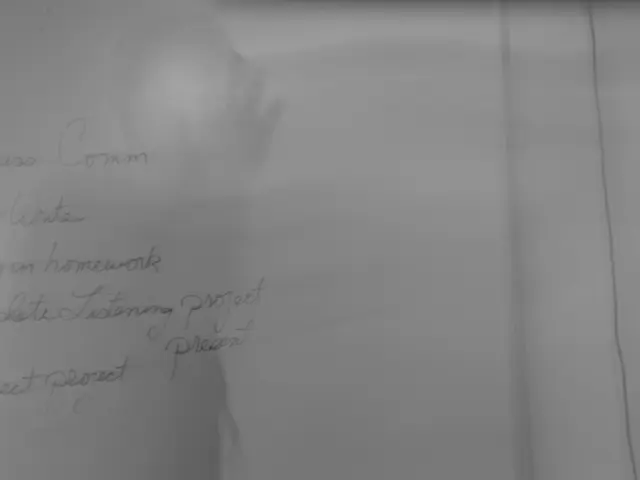US Scientific Independence Under Threat from Trump's Recent Executive Directive
The US executive order titled "Improving Oversight of Federal Grantmaking," signed by President Donald Trump on August 7, has significantly increased political appointee control over the federal scientific research grant process, potentially undermining research independence and introducing ideological criteria into funding decisions.
In the last decade, the US Congress awarded approximately $200 billion (€172 billion) annually in research grants. However, the new order grants political appointees sweeping authority over all federal grant funding, altering the traditional peer-reviewed scientific processes.
Under the order, political appointees can overrule scientific peer review recommendations, directly influencing which research projects receive funding based on alignment with administration priorities, not purely scientific merit. This shift could potentially replace scientific merit with ideological loyalty to the Trump administration.
Agencies like the National Institutes of Health (NIH) are instructed to pause new funding opportunities until new politically controlled review processes are implemented, potentially disrupting ongoing research activities. Grants may also be denied or terminated if projects are perceived as conflicting with prescribed “national priorities” or if they involve topics flagged as promoting disfavored values, thereby narrowing the range of admissible scientific inquiry.
Scientists and research advocates have criticized the executive order, saying it enhances Trump's control over scientific research and universities. The American Society for Microbiology CEO, Stefano Bertuzzi, warns that grant review by political appointees will further impede the work of the scientific community.
The order faces strong criticism, including from medical associations and science advocates. Opponents are likely to argue that the order violates safeguards designed to keep scientific research free from political oversight. The order could potentially spark lawsuits and challenges, given its broad authority shift and impacts on foundational scientific processes.
Science advocates are hoping Congress will act to block or modify the executive order's provisions. In August, Congress acted to protect the NIH's federal budget. Nobel laureate Victor Ambros, who won the 2024 Nobel Prize for Physiology or Medicine for the discovery of microRNA, called the order "unpatriotic in the extreme."
This is not the first time the Trump administration has faced legal challenges over executive orders. The potential politicization of federal scientific research grants could significantly impact the independence, integrity, and effectiveness of federally funded research, threatening the US' reputation as a scientific powerhouse and crippling vital research.
Summary Table: Key Changes and Implications
| Aspect | Change Introduced by EO | Potential Impact on Science Research | |--------------------------------|-------------------------------------------------------|----------------------------------------------------------| | Grant decision makers | Political appointees assume final approval authority | Increased politicization, reduced scientific autonomy | | Peer review | Advisory only; can be overridden | Undermines meritocracy, risk to funding quality | | Funding priorities | Must align with President’s policy & national interests| Limits research diversity, potential censorship | | Eligibility & monitoring | Higher compliance standards; stricter termination rules | Uncertainty and pressure on researchers and institutions | | Funding timelines | New processes may delay funding opportunities | Research disruptions, delays in scientific progress | | Institutional prestige | De-emphasized in favor of “democratization” | May affect established centers of excellence |
- The new executive order signed by President Donald Trump, titled "Improving Oversight of Federal Grantmaking," has the potential to significantly impact America's world-renowned science research, as political appointees are granted sweeping authority over federal grant funding, changing the traditional peer-reviewed scientific processes.
- Critics argue that this shift could potentially replace scientific merit with ideological loyalty to the Trump administration, threatening the independence, integrity, and effectiveness of federally funded research, and America's reputation as a scientific powerhouse.
- In the medical-conditions and health-and-wellness sectors, the order's implications are far-reaching, as grants may be denied or terminated if projects are perceived as conflicting with national priorities or involving topics flagged as promoting disfavored values, potentially narrowing the range of admissible scientific inquiry.
- Proponents of science and general-news media outlets are hopeful that political news and society may prompt Congress to block or modify the executive order's provisions, ensuring that research independence and the quality of research are maintained.
- The order faces legal challenges, with strong opposition from medical associations, science advocates, and even some Nobel laureates, who believe it violates safeguards designed to keep scientific research free from political oversight, potentially delaying funding opportunities, research disruptions, and crippling vital research in America.




